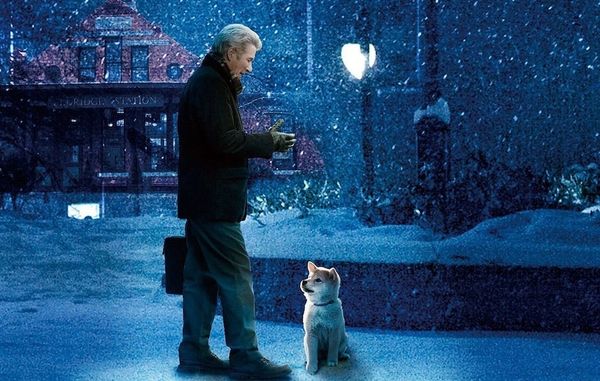Hachi: A Dog’s Tale (2009)


“Hachi: A Dog’s Tale,” released in 2009, is a deeply moving American drama directed by Lasse Hallström. This film is an adaptation of the 1987 Japanese movie “Hachikō Monogatari,” which tells the true story of Hachikō, an Akita dog known for his extraordinary loyalty to his owner. The film stars Richard Gere as Parker Wilson, with Joan Allen and Cary-Hiroyuki Tagawa in supporting roles. It beautifully captures the bond between humans and animals while exploring themes of love, loyalty, and the enduring nature of companionship.
The story is set in the 1980s in a small town in Rhode Island, where Parker Wilson, a college professor, discovers an Akita puppy abandoned at a train station. He takes the puppy home, naming him Hachi after the Japanese word for eight, which is a nod to his breed’s origins. From their very first moments together, the bond between Parker and Hachi is palpable, characterized by warmth and affection. Richard Gere delivers a heartfelt performance as Parker, embodying the character’s gentle spirit and deep love for his pet.
As Hachi grows, the film depicts their daily routines, showcasing the simple yet profound joys of their companionship. Each day, Hachi accompanies Parker to the train station, waiting for him to return from work. This ritual establishes a sense of routine and highlights the loyalty that Hachi embodies. The cinematography captures the idyllic nature of their small-town life, creating a backdrop that complements the emotional core of the story.
The narrative takes a heart-wrenching turn when Parker unexpectedly passes away at work, leaving Hachi alone and heartbroken. Unaware of his owner’s fate, Hachi continues to wait at the train station every day, year after year, hoping for Parker’s return. This poignant display of loyalty and devotion resonates deeply with viewers, illustrating the bond between Hachi and Parker that transcends the boundaries of life and death. The emotional weight of Hachi’s unwavering faithfulness serves as a powerful testament to the loyalty that dogs can embody.
Throughout the film, the supporting characters contribute to the narrative’s emotional depth. Joan Allen plays Catherine, Parker’s wife, who initially struggles to understand Hachi’s devotion but ultimately comes to appreciate the dog’s unwavering loyalty. Their interactions emphasize the bond shared not only between Hachi and Parker but also among family members, illustrating how love can manifest in various forms. Cary-Hiroyuki Tagawa portrays the local train station manager, who witnesses Hachi’s daily vigil and becomes an ally in honoring the dog’s loyalty.
Lasse Hallström’s direction ensures that the film remains grounded in its emotional truth. The pacing allows for moments of reflection, giving viewers time to absorb the profound nature of Hachi’s love and the impact of loss. The score, composed by Jan A.P. Kaczmarek, beautifully complements the emotional beats of the film, enhancing the viewer’s connection to the characters and their experiences.
“Hachi: A Dog’s Tale” also serves as a cultural bridge, introducing audiences to the story’s origins while recontextualizing it for an American audience. The film honors the historical significance of Hachikō in Japan, where he is celebrated as a symbol of loyalty and devotion. By adapting this story for a new audience, the film invites viewers to reflect on the universal themes of love and loss, making it relatable across cultural boundaries.
The film’s conclusion is both heartwarming and heartbreaking, as Hachi continues his daily vigil long after Parker’s death. This unwavering commitment culminates in a powerful emotional moment that leaves a lasting impact on the audience. The final scenes highlight the legacy of Hachikō, reminding viewers of the profound connections that exist between humans and their animal companions.
In summary, “Hachi: A Dog’s Tale” is a beautifully crafted film that pays tribute to the extraordinary bond between a dog and his owner. Through its rich storytelling, heartfelt performances, and poignant themes, the film resonates with audiences, leaving a lasting impression of love and loyalty. It serves as a reminder of the unwavering devotion that pets can offer and the deep connections that define our lives. The story of Hachikō transcends time and culture, making it a timeless tale that will continue to touch hearts for generations to come.
Suggested videos for you:










